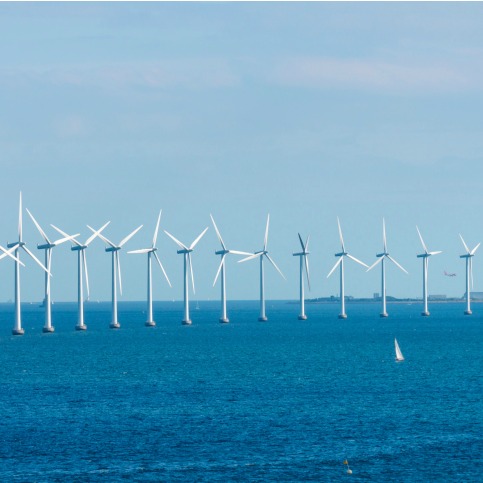 Wind power developer Windstream Energy says it intends to seek C$475.23 million from the Ontario government for alleged damages and lost profits resulting from its February 2011 decision to halt offshore wind project development.
Wind power developer Windstream Energy says it intends to seek C$475.23 million from the Ontario government for alleged damages and lost profits resulting from its February 2011 decision to halt offshore wind project development.
Windstream's notice of intent to file suit follows a C$2 billion case initiated by Trillium Power, which says it was in the advanced stages of developing offshore wind projects in the Great Lakes when the province announced the offshore wind freeze, and a C$1 billion lawsuit filed by SouthPoint Energy over what the company claims was confiscation of its property, intellectual property and assets.
However, Windstream claims that although it has not officially filed suit, its case is different from the others because it is the only company to have an approved feed-in-tariff (FIT) contract for offshore wind power in Ontario. The developer secured the contract for its proposed 300 MW Wolfe Island Shoals (WWIS) project in 2010.
In its claim, Windstream says that as a requirement of the FIT contract, the company had delivered a C$6 million letter of credit to the Ontario Power Authority, as well as incurred millions of dollars in expenses in staffing, engineering and other costs.
Notably, Windstream had already entered into a $600 million binding turbine supply agreement with Siemens Canada and had forged other deals to meet the province's domestic-content requirements. The developer had also already completed some of the technical studies for the project when the Ontario government issued the moratorium.
"Windstream has spent heavily and made significant commitments to suppliers in Ontario, and [the company is] pursuing legal action, with the hope that the government will mitigate the damage they have done and remove the roadblocks that stand in the way of bringing further investment and jobs to the province," Windstream spokesperson Randi Rahamim tells NAW.
At the time, the provincial government said it was not terminating the project, but rather postponing it until further scientific study was conducted. However, Windstream maintains that the government has no intention of lifting the moratorium and accuses Ontario of violating several clauses of the North Atlantic Free Trade Agreement (NAFTA).
"As there is no evidence that the Government of Ontario has any intention of lifting the moratorium, and neither Canada nor Ontario has paid fair market value for effectively depriving Windstream of all the value of the WWIS and its interests arising from the FIT contract, its actions constitute unlawful expropriation contrary to NAFTA Article 1110," Windstream's claim states.
Under NAFTA rules, Canadian companies are prohibited from nationalizing or expropriating an investment of a U.S. investor in their territory. Because Windstream is a Delaware-based limited liability company owned by a New York-based investor, the Ontario government violated NAFTA rules, the company says.
"Windstream's American investors have spent heavily in Ontario since the process began," Rahamim notes.
Windstream also says the offshore wind moratorium violates other NAFTA requirements, including fair and equitable treatment.
"The adoption of the moratorium by Ontario and its application to the WWIS project was arbitrary, irrational and discriminatory," the claim states. "It violated the legitimate expectations of Windstream and WWIS that if they applied and obtained a FIT contract for an offshore wind facility, they would be able to apply for required regulatory approvals under a streamlined regulatory approvals process."
The Ontario government has not commented on Windstream's intent to file suit. However, it has already rejected some of the suggestions proposed by the developer. For one, Windstream proposed that the FIT contract for the WWIS project be substituted with FIT applications for onshore wind or solar projects that had already been approved by the Ontario government, but those suggestions were turned down, according to Windstream.
Despite the frustrations, Windstream says it is still seeking to resolve the matter without officially submitting an arbitration claim.
"The notice of intent only advises the federal government that Windstream may proceed to submit a claim of arbitration in the future," Rahamim says. "It clearly states that it is Windstream's desire to seek an amicable resolution to this dispute."



